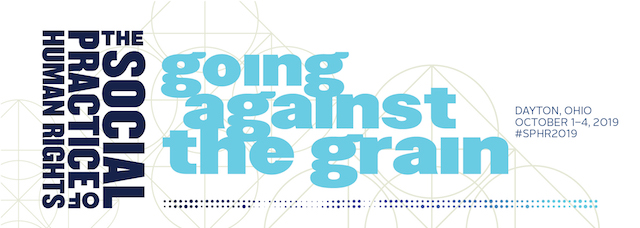Location
Centering Queer Rights
Start Date
10-3-2019 9:00 AM
End Date
10-3-2019 10:30 AM
Keywords
LGBT Rights, Norm Diffusion, Counter-norms, Propaganda, Advocacy
Abstract
Does the norm diffusion process work in reverse? Specifically, does the success of the Russian government in building counternarratives and counternorms to reinforce its authoritarian government mean they have the ability to diminish successful human rights advocacy in the United States? This project examines whether the rhetoric used to justify anti-LGBT policies in Russia are broadcast and adopted by anti-LGBT groups in the United States. In the United States, public support for LGBT civil rights is often cited as a success story in the adoption and diffusion of human rights norms. Often, this is used as evidence of broadening norm adoption. However, this local success has not been followed by global success. Russia, for example, remains as a country that largely denies LGBT rights and criminalizes advocacy as “homopropaganda.” Rather than causing public backlash, this position is met with widespread public support in Russia. We expect the existence of a successful counternorm in one country to be adopted and weaponized against the same group in another country where human rights norms have been adopted. We examine this question by collecting public statements and stories issued by Russian state media that reference LGBT rights issues. We then compare them to statements made by American ant-LGBT groups, measuring for changes in content. We expect that, over time, American groups start to use rhetoric similar to that used by Russia.
Author/Speaker Biographical Statement(s)
Christopher F. Patane, PhD, is a Lecturer in the Department of Political Science at Sam Houston State University in Huntsville, Texas. His research focuses on how governments use propaganda to justify human rights abuses at home and abroad. Primarily, this involves looking at public statements that illustrate the view of dissidents that the government is trying to get the population to adopt in order to prevent public backlash from repression and violence. Marc S. Polizzi, PhD, is an Assistant Professor of Political Science in the Department of Political Science and Sociology at Murray State University in Murray, Kentucky. His research focuses on the role of non-state actors in enhancing citizen participation in government, both in formal institutions and through extraparliamentary tactics. His recent work studies the individual-level motivations behind resistance to and support of resource extractive projects in Latin America.
Counter-Diffusion: Does Russian Propaganda Wind Up in America?
Centering Queer Rights
Does the norm diffusion process work in reverse? Specifically, does the success of the Russian government in building counternarratives and counternorms to reinforce its authoritarian government mean they have the ability to diminish successful human rights advocacy in the United States? This project examines whether the rhetoric used to justify anti-LGBT policies in Russia are broadcast and adopted by anti-LGBT groups in the United States. In the United States, public support for LGBT civil rights is often cited as a success story in the adoption and diffusion of human rights norms. Often, this is used as evidence of broadening norm adoption. However, this local success has not been followed by global success. Russia, for example, remains as a country that largely denies LGBT rights and criminalizes advocacy as “homopropaganda.” Rather than causing public backlash, this position is met with widespread public support in Russia. We expect the existence of a successful counternorm in one country to be adopted and weaponized against the same group in another country where human rights norms have been adopted. We examine this question by collecting public statements and stories issued by Russian state media that reference LGBT rights issues. We then compare them to statements made by American ant-LGBT groups, measuring for changes in content. We expect that, over time, American groups start to use rhetoric similar to that used by Russia.



